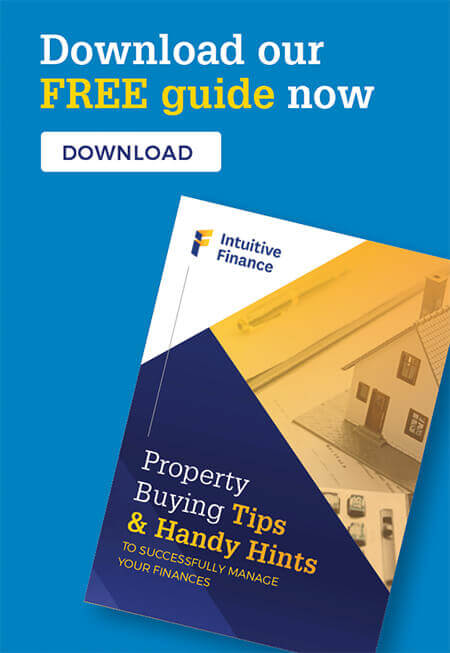It’s no big secret that more and more Australians are exploring how real estate finance and investments can improve their financial situation.
Developing an investment strategy which involves buying quality investment properties is one way that they can create wealth and set themselves up for a more comfortable life before and after retirement.
But the lending market, just like the real estate one, can go through various stages, which can make it more difficult to access finance.
However, even though the market is restricted due to regulatory intervention, that doesn’t mean that finance deals aren’t being done.
The biggest changes in the real estate lending market

Let’s get one thing straight: the banks are still very much open for business.
That means that home loans are still being approved for borrowers – homeowners and investors, alike.
Sure home loan interest rates have changed over the past year or so but mainly for investors.
The Reserve Bank hasn’t touched interest rates since August 2016 and that was a 25 basis point cut.
What has happened is that the Australian Prudential Regulation Authority (APRA) has instigated lending restrictions to investors and interest-only borrowers.
That has meant that lenders have increased interest rates for these types of borrowers as well as changed their serviceability calculations and loan to value ratio requirements.
What does this mean in reality? How hard is it to get a home loan?
Well, it means that lenders are approving home loans for quality borrowers who can afford the repayments under the current regime.
Borrowers who previously may not have had a decent deposit or who opted for interest-only repayments because that’s all they could afford will find it more difficult to get a home loan today.
But I don’t think that’s a bad thing – we want a robust banking sector after all when it comes to real estate finance and investments.
How are these restrictions are impacting your investments
Those APRA lending restrictions have impacted investors the most, especially in Sydney and to a lesser degree, in Melbourne.
New and existing investors have experienced increases to their interest rates of up to about 0.8 percentage points.
Ditto for interest-only borrowers, whether they are investors or not.
It’s important to understand that even with these increases to home loan interest rates, rates are still hovering around the five per cent mark, which is historically low.
 Many interest-only borrowers have responded by changing their repayments to principal and interest, which is always a good idea for homeowners.
Many interest-only borrowers have responded by changing their repayments to principal and interest, which is always a good idea for homeowners.
Most existing investors have been able to maintain their repayments without too much trouble under the higher rate environment.
And the cycle of rate increases appears to have slowed given data is showing that the number of investors in the marketplace has fallen, which was APRA’s goal all along.
In fact, APRA chairman Wayne Byers has gone on record as saying “these were only intended as temporary measures” and that APRA would need “to be comfortable that the industry’s serviceability standards have been sufficiently improved and – crucially – will be sustained.” Byres added.
And In its October monetary policy meeting, the RBA stated that that household balance sheets “remained a key area of attention for policymakers”.
They also noted that high debt meant households were sensitive to any increases in interest rates.
However, the RBA recognised that the levels of interest-only lending and high LVR loans were declining, as had investor lending.
Additionally, banks were already close to meeting APRA’s capital requirements for 2020.
Structuring your finances to stay ahead of market changes
 While it might seem like it is harder to get a home loan today, it doesn’t have to be that way.
While it might seem like it is harder to get a home loan today, it doesn’t have to be that way.
Ensuring you have professional advice from the outset will improve your chances of home loan success as well as creating the very best real estate finance and investments.
When it comes to property lending today, banks still want your business.
The prudential controls, however, means they have to be more selective.
There remains lending products on the market for all types of home buyers – from sophisticated investors to first-timers.
The key to success is to ensure that your application is as squeaky clean as possible.
That means understanding which home loan is going to be the right one for you as well as your financial circumstances.
There is no point applying for a home loan if you don’t have the required deposit or your credit history is a bit wonky.
Preparation is key so you can submit the very best application which lenders won’t be able to find any reasons not to approve.
Who should I talk to for advice on borrowing and home investment?
Understanding home loan interest rates and how they impact your chances of application success doesn’t need to be confusing.
That’s because professional mortgage brokers have a deep understanding of the loan market as well as property lending environment.
The world of banking and finance can be a pretty daunting one for both novice and sophisticated investors and since our establishment in 2002 we’ve focused on providing outstanding service and business standards.
This approach has been vindicated many times by our multi award winning approach.
So, if you’d like to learn how to successfully apply for a home loan today, why not contact Intuitive Finance today to ensure you have the right information and expert support on your side from the very beginning.
If you’d like an expert to provide you with a better understanding of home loan interest rates or if you have any other questions, please just contact us directly and we’ll be in touch.
The information provided in this article is general in nature and does not constitute personal financial advice. The information has been prepared without taking into account your personal objectives, financial situation or needs. Before acting on any information you should consider the appropriateness of the information with regard to your objectives, financial situation and needs.
- Choosing the right mortgage solution of variable fixed or both - October 8, 2024
- All You Need to Know About Bank Valuations - September 20, 2024
- Getting the Most out of the Spring Property Season - August 26, 2024










4 Comments. Leave new
so we still don’t know whether we are at the start, middle or the end of their forced interventions upon the credit & housing markets, correct?
I would suggest we are closer to the end but that is the 1 thing that has never been articulated.